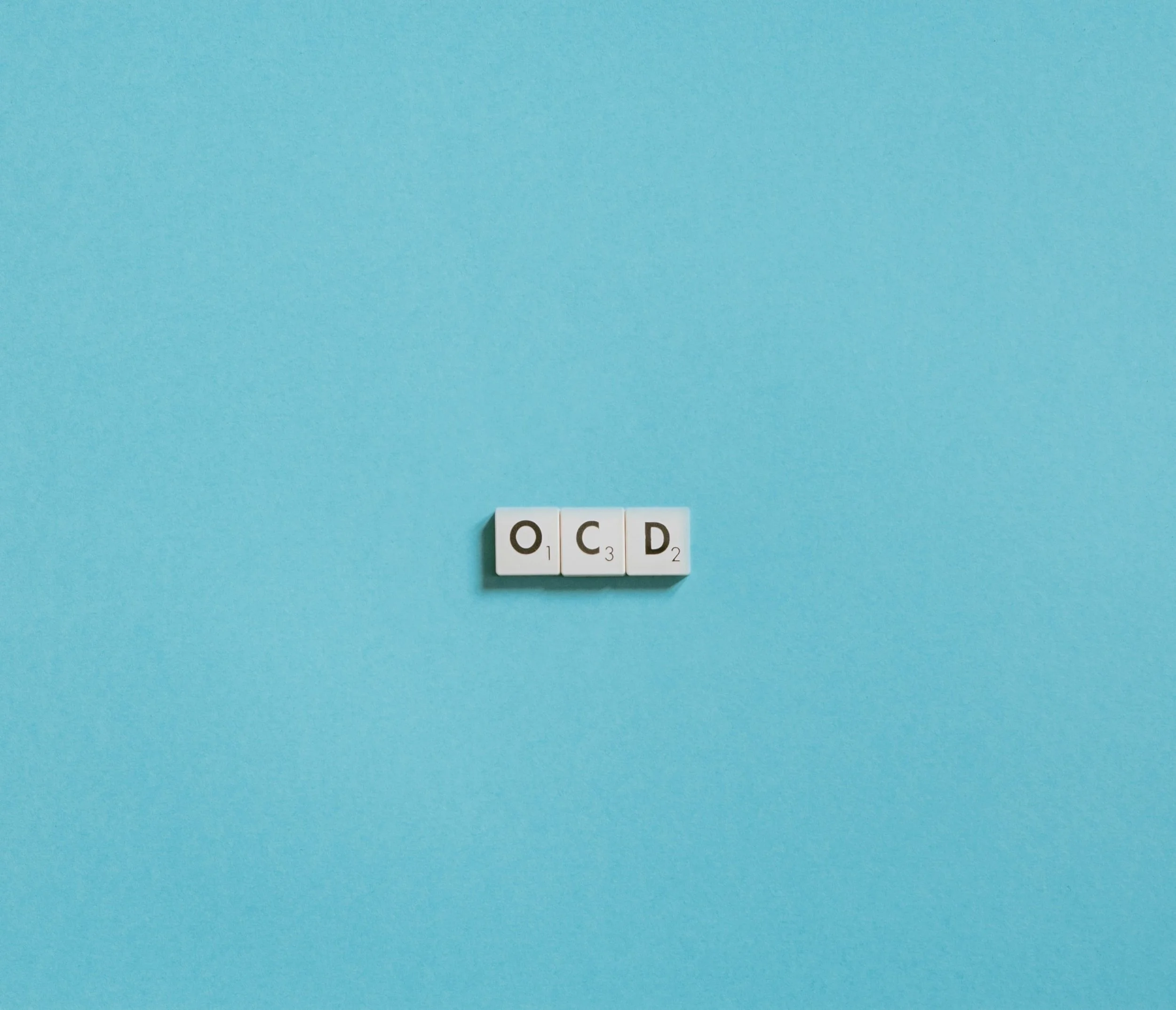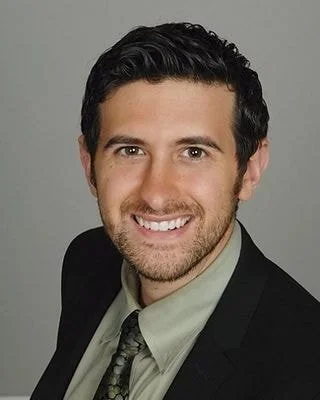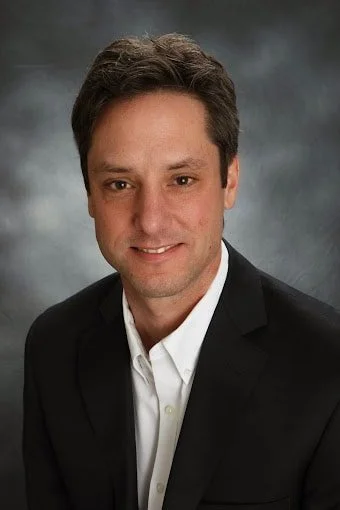Who are the Best OCD Therapists in Charlotte, NC?
My name is Dr. Jessica Ribeiro, and I'm a clinical psychologist with over 15 years of clinical, research, and teaching experience. In my clinical practice, I specialize in the treatment of obsessive compulsive disorder and anxiety. I am also an eating disorder specialist. What I'm most passionate about in my practice is providing treatments that work -- that is, treatments that have a strong scientific backing to support them. These treatments tend to be based in cognitive behavioral approaches that are designed to be short-term treatments that are able to get help people make progress toward experiencing relief from their symptoms and improving their quality of life fairly quickly. They tend to emphasize being highly collaborative, goal-driven, present-focused, and action-oriented.
If that sounds like it's ticking the boxes for what you're looking for, my practice might be a good fit for you. But, if you're more interested in long-term therapy or exploratory therapy that isn't very goal-driven, my practice won't be a good match. It's also unlikely to be a good match if you're looking for treatment for conditions I don't specialize in, like trauma or substance use, for instance. In these cases, a different provider will likely be a better option.
I decided to write this post because I know how difficult and confusing it can be to find a therapist. There are over 2,000 therapists in Charlotte alone, and a significant proportion of them describe themselves as treating OCD. Sifting through all the options can be really overwhelming. So, to help a bit, I decided to identify a few providers in this area to start off with, given their training and experience. Quick note that these are not the only providers who are capable of providing high quality care in Charlotte -- these are just a few to consider. I hope it helps!
Four of the best Charlotte OCD therapists
1. Jessica Ribeiro, Ph.D.
Dr. Jessica Ribeiro is a clinical psychologist specializing in the treatment of obsessive compulsive disorder, anxiety disorders, eating disorders, and depression with over 15 years of clinical, research, and teaching experience. She has been named a Rising Star by the Association for Psychological Science, Best Early Career Researcher by the American Association of Suicidology, and a Highly Cited Researcher by Web of Science. She has authored more than 80 peer-reviewed publications in leading scientific journals, with her research being cited over 13,000 times and covered in the popular press, including The New York Times, The Wall Street Journal, NBC, and BBC, among others. She is considered an expert in leading evidence-based cognitive-behavioral treatments.
Credentials: PhD
Licensed in Florida, North Carolina, and New Jersey; certified to provide telehealth across all PSYPACT participating states
Education:
BA, University of Pennsylvania
PhD, Florida State University
Predoctoral Residency: Warren J. Alpert Medical School of Brown University
Postdoctoral Fellowships: Harvard University; Vanderbilt University
Google Rating: 5.0
Specialty areas: eating disorders, depression, anxiety disorders, obsessive compulsive disorder
Years in practice: 15+ years
2. Nikki Pagano, LCSW
Nikki Pagano is a licensed clinical social worker with extensive training and expertise in a range of evidence-based treatments. In her practice, she specializes in the treatment of obsessive compulsive disorder using Exposure and Response Prevention. She is also an eating disorder specialist and has additional expertise in treating anxiety disorders as well as selective mutism is children. She works with children, adolescents, and adults. She maintains professional memberships with the International OCD Foundation, Association for Behavioral and Cognitive Therapies, and the Academy for Eating Disorders.
Credentials: LCSW
Licensed in North Carolina, New York, South Carolina, Georgia
Education:
BA, Davidson College
MSW, Columbia University
Google Rating: Not Available
Specialty areas: eating disorders; obsessive compulsive disorder; anxiety disorders; selective mutism
Years in practice: 10+ years
3. Jesse Selkin, PsyD
Dr. Jesse Selkin is a licensed clinical psychologist whose practice centers on treating obsessive compulsive disorder and anxiety disorders using evidence-based treatments, including cognitive behavioral therapy and exposure and response prevention. He is a member of the International OCD Foundation and OCD North Carolina.
Credentials: PsyD
Licensed in North Carolina
Education:
PsyD, The Chicago School of Professional Psychology
Post-Doctoral Fellowship: The Center for Treatment of Anxiety and Mood Disorders in Delray, FL
Google Rating: 5.0
Specialty areas: anxiety disorders; obsessive compulsive disorder
Years in practice: Not Available
4. Kevin L. Gyoerkoe, PsyD
Dr. Kevin Gyoerkoe is a licensed psychologist specializing in OCD and anxiety-related conditions. His approach is based in cognitive behavioral approaches and is certified by the Academy of Cognitive Therapy. In his practice, he works with children, adolescents, and adults experiencing anxiety, OCD, and related concerns. He is also actively involved in several professional organizations, including the Anxiety Disorder Association of America, the International Obsessive Compulsive Foundation, OCD North Carolina, and the Mecklenburg Psychological Association.
Credentials: PsyD
Licensed in North Carolina
Education:
PsyD, Nova Southeastern University
Google Rating: 5.0
Specialty areas: anxiety disorders; obsessive compulsive disorder
Years in practice: 20+ years
FAQs about OCD treatment in Charlotte, NC
-
Before getting into questions about treatment, let's cover a bit about obsessive compulsive disorder. Because, unfortunately, OCD is often misunderstood. OCD is a debilitating mental health disorder that's characterized by obsessions, compulsions, or both. To illustrate what it's like struggling with OCD, imagine that your mind is like a computer that's constantly running background processes. For most individuals these processes stay in the background, remaining manageable and routine. But, for someone suffering from OCD, one of these processes gets stuck in a loop, such that they're thoughts and/or behaviors keep replaying over and over again, regardless of how much they try to stop them.
There are two main features of OCD -- obsessions and compulsions:
Obsessions are intrusive thoughts, urges, or images that are unwanted and feel like they're on repeat, causing a lot of distress and/or impairment. Although in the media this is often portrayed as being about fear of germs, these thoughts could be about anything. Common obsessions include fears of germs or contamination, fears of losing or forgetting something, fears of losing control, fears of harming yourself or someone else, moral fears (e.g., fears you may be a pedophile), and desires to have things "just right."
Compulsions are repetitive behaviors or rituals that a person feels compelled to do, often in response to an obsession. Often, these behaviors may seem irrational to others. But, for someone with OCD, these behaviors temporarily relieve anxiety and distress that is caused by obsessions. Common compulsions include excessive cleaning or handwashing, ordering or arranging things in a particular, counting something over and over again, checking something repeatedly, or praying or repeating words silently.
Not everyone who has OCD experiences both obsessions and compulsions, but many people do. For someone to meet criteria for OCD, they must spend greater than an hour on their obsessions and/or compulsions daily and experience some degree of distress and/or impairment in their daily functioning or important areas of their life (e.g., relationships, work, etc.) due to their symptoms.
-
So, let's talk a bit about the science and what the best available evidence so far says about what causes OCD and what keeps it going.
Although we don't know precisely what causes OCD, we do know that many factors likely contribute to it's onset. Here are some common factors that likely contribute to the onset of OCD:
Genetics: OCD tends to run in families. So, if you are suffering from OCD, there's a reasonable chance that someone in your family does as well. If a close relative has OCD, your chances are significantly increased relative to a more distant family member or no family history at all; though, it's important to emphasize that it's not a guarantee that you'll develop the condition. It's also important to note that you can develop OCD without having any family history of the disorder.
Environment: Certain life events can also play a role, though again, this isn't necessary. Stressful experiences, especially when younger, have been associated with OCD, especially in individuals who are genetically predisposed. Also, modeling or learning in your early environment can also contribute to the development of OCD symptoms.
Cognitive factors: Individuals who develop OCD often appear to both overestimate the likelihood of something bad happening and feel an undue and inflated sense of responsibility to prevent it. This often leads to the use of compulsive behaviors (e.g., checking you locked the door again and again) in an attempt to try to reduce their anxiety; however, this ultimately ends up creating even more intense anxiety and reinforces the need to engage in compulsive behaviors over time. In short, this results in a vicious cycle that's really hard to break.
Although it can be helpful to have some insight into what first set OCD off for someone, when it comes to treatment, what matters more is understanding what factors are making OCD symptoms persist.
Short-term Relief: One of the biggest factors that maintains OCD symptoms is the immediate (albeit temporary) relief that occurs when someone engages in compulsive behaviors or in how they response to their obsessions. To illustrate this, let's consider an example:
It all starts with an intrusive thought, image or urge that causes intense anxiety or distress. For instance, someone may think, "What if I didn't turn off my stove and my house burns down?" This feels like a real possibility and therefore results in distress. For someone with OCD, this thought feels nearly impossible to ignore and becomes increasingly more overwhelming. To reduce their distress or negative feeling, they respond by engaging in a compulsion. This could be a mental act, such as repeatedly trying to reassure themselves that they turned off their stove, or a repetitive behavior, such as checking that their stove multiple times to make sure it's turned off. This compulsion provides some sense of relief, but that relief is temporary and short-lived. And, once the intrusive thought returns, the cycle starts again.
That temporary relief that a person experiences after performing a compulsion is highly reinforcing. This is because your brain learns that the compulsion 'works' to reduce distress, even for just a short period of time. So, the next time the person experiences an intrusive thought, their brain is more likely to rely on the same strategy to cope with their distress. The more that someone engages in these compulsions, the stronger the link between the intrusive thought and compulsive behaviors or responses will get. Eventually, the person's brain adapts such that engaging in the compulsive behavior is necessary to address the distress caused by intrusive thoughts, even though, ironically, the 'solution' is actually the thing that's creating the problem.
-
Exposure and response prevention (ERP) is considered the gold standard therapy to treat obsessive compulsive disorder. ERP is a form of cognitive behavioral therapy that directly addresses the vicious cycle of obsessions and compulsions we just went over. Because of how effective it is, this is what I use in my practice. Below, I'll cover a bit about what it is, how it works, and what the research says about its efficacy.
What is ERP ?
ERP has two essential components: (1) exposure and (2) response prevention. Exposure involves systematic and repeated exposure to the obsessive thoughts, images, situations, or objects that elicit distress or anxiety. Response prevention involves resisting the urge to engage in the compulsion that the person usually engages in to immediately reduce their anxiety in these situations. So, for instance, a patient with contamination fears may be asked to touch a doorknob that they perceive as contaminated without washing or sanitizing their hands after doing so. The objective is to experience the anxiety without engaging in the compulsive behavior.
How does it work?
ERP is effective because it helps you learn something new about the association between your obsessions and compulsions. When you repeatedly face your fears without engaging in compulsions, you get an opportunity to learn that (a) your distress decreases on its own (i.e., the compulsive behaviors or rituals were unnecessary) and (b) the thing you are afraid of likely doesn't happen or, even if it does, you're capable of tolerating and dealing with it. The more you repeat these exposures without engaging in rituals or compulsive responses, over time, the power of obsessions and compulsions decreases. As a result, the intensity and frequency of OCD symptoms decrease overall.
Importantly, ERP is not about managing symptoms in the short-term but rather teaching patients strategies to make lasting changes in their daily life. Patients over time gain confidence in their ability to handle anxiety and distress without relaying on compulsive behaviors. This becomes a skill they can apply even after they end their time in therapy.
How effective is Exposure and Response Prevention?
The sum of the scientific evidence is clear: ERP is highly effective in reducing OCD symptoms, with the majority of patients who complete treatment experiencing significant reductions in symptoms and improvements in their quality of life. Here's a brief breakdown of the research findings on ERP:
High rate of success: Research suggests that between 60-80% of people who undergo ERP experience considerable symptom reductions.
Robust and durable effects: Longitudinal follow-up studies indicate that the gains that people make while engaging in ERP treatment are often sustained over time, even after they've stopped going to treatment.
Outperforms other treatments: ERP has been repeatedly shown to be more effective than other forms of therapy, including traditional cognitive behavioral therapy and anxiety management techniques that do no involve exposure.
-
Deciding whether to see a psychologist or psychiatrist for your OCD symptoms depends on the type of treatment you're seeking. Here's a breakdown of the differences between these two providers in the context of OCD treatment:
Psychologist:
Therapy Focus: Psychologists are trained in various forms of therapy, including Exposure and Response Prevention (ERP), which are the most effective treatments for OCD.
Behavioral Intervention: If you're primarily looking for therapy, especially ERP, a psychologist who specializes in OCD can provide this treatment and help you develop coping strategies to manage symptoms.
No Prescriptions: Psychologists do not prescribe medications but often work closely with psychiatrists if medication is needed.
Psychiatrist:
Medication Management: Psychiatrists are medical doctors who can prescribe medications, such as selective serotonin reuptake inhibitors (SSRIs), which are sometimes used as an adjunctive treatment for OCD symptoms.
Combined Treatment: If your OCD is severe or if you’re considering medication in addition to therapy, a psychiatrist can evaluate whether medication might be beneficial.
Get the effective, personalized OCD treatment you’ve been looking for.
Struggling with OCD can feel overwhelming, but the silver lining is that we have really effective treatments that work well and quickly. I firmly believe that OCD is 100% treatable -- I've seen it time and again in my practice. You can reach a place where OCD symptoms no longer interfere with your ability to enjoy life. As a therapist, I'm dedicated to helping you achieve that as quickly as possible. If you'd like to learn more or see if my practice is the right fit for you, feel free to reach out to schedule a free consultation as a first step.





